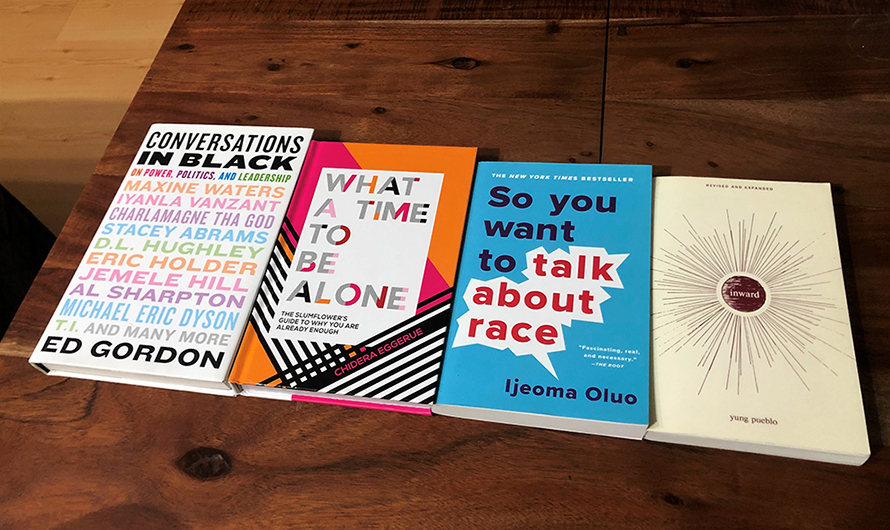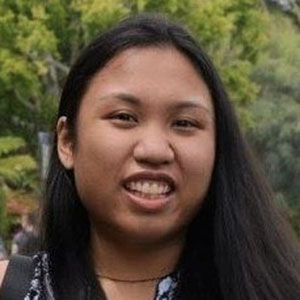New-ish adventures help me reconnect
In early October, I received an email from my home campus: "We are very happy to start our seminar series this Fall." I was ecstatic. For the first time in a very long time I would be able to see people from my department. And I was thrilled to learn more about the cancer-related research being done at my school — cancer research in general piques my interest.
The day approached, and the seminar started; I was excited and eager to learn. But as it went on, my excitement faded, and I started to get sad. I couldn't concentrate on the words, and I was left wondering: Out of all the seminars I've attended via Zoom, why is this one having this effect on me?
I felt this same sadness the first time I did other familiar tasks during quarantine. From analyzing data and writing reports at home to having virtual lab meetings with my research mentor and online recitation classes with my students, all was not as it used to be.
One day in April while working from home during the first peak COVID-19 surge in New York City, I was feeling particularly down, and every negative thought weighed on me all at once. To counter this feeling, I thought, "Hey, what if I try something different and new?"
By new, I didn't mean completely divergent from my usual activities, but rather a different version of what I already do. I didn't want to overwhelm myself. For example, I usually listen to music while grading assignments and doing household tasks, but what if I tried listening to podcasts? I usually read journal articles related to my thesis project or other life sciences research, but what about nonscience literature?

Besides research reports and thesis proposals, I write articles for a cancer research blog called OncoBites about topics in cancer research based on published journal papers. To try something different, I wrote a few articles for BioBus, a science outreach organization I volunteer with. These articles were aimed at a middle school audience, and the topics were birdsong and snail venom — far from what I'm used to writing about. These were a challenge, but it felt great that I still was able to teach children science. Then I wrote an OncoBites article about an organization called Black in Cancer, whose goals are to "strengthen networks and highlight Black excellence in cancer research and medicine." I interviewed the organization's co-founders, even though I hadn't done an interview article since I was an undergrad.
Pre-pandemic, I attended chemistry, biology and biochemistry seminars on my home campus and at one other university. Now I can attend online biochemistry seminars from campuses around the country and the world. I even have listened to seminars in other fields.
At first, my main goal was to try something new for a positive change. But I eventually found another common theme — I was trying to reconnect with myself and with others around me in new ways.
The nonscience literature I've read, nonscience seminars I've attended and podcasts I've listened to mainly revolve around either racial justice or self-love and mental health. One of the more memorable talks I've heard was about an initiative dedicated to breaking the stigma around anxiety and depression. Talking points ranged from using journaling as a therapeutic tool to protecting ourselves from triggers on social media. Another talk was about how economic inequality extends to public school education. From this, I've learned the extent of the impact a lack of adequate resources can have on students.
In a time when tensions and anxieties are high, it is important to take care of my mental health, appreciate myself for who I am and be as good of an ally of the Black Lives Matter movement as I can be.
By writing a variety of articles and listening to science communication talks, I've connected in new ways with my passion for writing and sharing knowledge. And by attending the biochemistry seminars of a sister campus, I'm able to, in a way, connect with more of my school community rather than just with my home campus.
All these changes inspired me to reconnect with a good friend from undergrad whom I hadn't really spoken to since graduation. Over the years, every so often, I contemplated getting in touch with her again. But because of all the time that has passed, I always felt too embarrassed and shy to do it. One night, I decided to message her, and she quickly responded, to my pleasant surprise. Since then, we've had a number of conversations.
As the months go on, it's become easier to adjust to the new normal and proceed as I did before, albeit in a more virtual fashion. What has helped me the most is my reestablished relationship with myself and with others both directly and indirectly around me.
Enjoy reading ASBMB Today?
Become a member to receive the print edition four times a year and the digital edition monthly.
Learn moreGet the latest from ASBMB Today
Enter your email address, and we’ll send you a weekly email with recent articles, interviews and more.
Latest in Opinions
Opinions highlights or most popular articles

Women’s health cannot leave rare diseases behind
A physician living with lymphangioleiomyomatosis and a basic scientist explain why patient-driven, trial-ready research is essential to turning momentum into meaningful progress.

Making my spicy brain work for me
Researcher Reid Blanchett reflects on her journey navigating mental health struggles through graduate school. She found a new path in bioinformatics, proving that science can be flexible, forgiving and full of second chances.

The tortoise wins: How slowing down saved my Ph.D.
Graduate student Amy Bounds reflects on how slowing down in the lab not only improved her relationship with work but also made her a more productive scientist.

How pediatric cataracts shaped my scientific journey
Undergraduate student Grace Jones shares how she transformed her childhood cataract diagnosis into a scientific purpose. She explores how biochemistry can bring a clearer vision to others, and how personal history can shape discovery.

Debugging my code and teaching with ChatGPT
AI tools like ChatGPT have changed the way an assistant professor teaches and does research. But, he asserts that real growth still comes from struggle, and educators must help students use AI wisely — as scaffolds, not shortcuts.

AI in the lab: The power of smarter questions
An assistant professor discusses AI's evolution from a buzzword to a trusted research partner. It helps streamline reviews, troubleshoot code, save time and spark ideas, but its success relies on combining AI with expertise and critical thinking.

